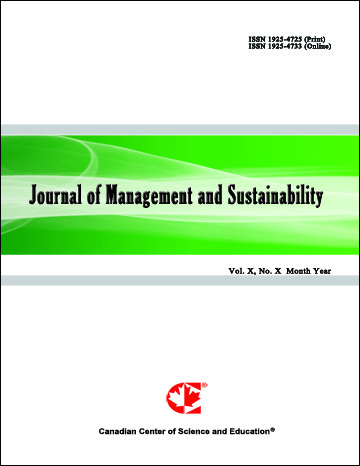Education and Sustainability: The Case of Emotions Park
- Angela Dettori
- Federica Caboni
- Ernestina Giudici
Abstract
Firms working in the third millennium have to face the challenge of being more sustainable. The complexity and the multidisciplinary nature of sustainability also requires new and specific knowledge. This means the necessity of a critical rethinking of the education system in the way to provide the cognitive tools and applications needed for new generations to address environmental, economic, and social challenges. In this perspective, the role of the school it is crucial, above all, to encourage attention to include sustainability as a theme on educational programs, focusing on the promotion of its multiple dimensions. Interdisciplinary sustainability programs are emerging globally, but little is known about the learning in these educational contexts.
Therefore, the current research explores training modules used in the activities of a park to verify how students can receive a sustainable education from primary school; whether and in which way education can be a driver for the promotion of sustainable development; and whether it is effective to insert eco-activities such as eco-games, eco-campus, and eco-sports in the training modules from primary school onwards. For this purpose, the paper employed a single case study approach using the Emotions Park as a teaching plan. In particular, game and sports constantly accompany the training process by creating interdisciplinary links with different study subjects (e.g., civic education, environmental education, communication). Through the eco-activities, an innovative way to promote environmental and sustainability education was explored as a training model. Outdoor play, observation, and stimulation of the senses have proved powerful learning tools, and key to the acquisition of skills. Research data were collected observing the behavior of a sample of 22 participants and through face-to-face semi-structured interviews with educators, employee and students. The empirical observation suggests that inserting the sustainability principles as a topic in didactic programs provides the cognitive tools and applications needed for the new generations to address environmental, economic, and social challenges.
- Full Text:
 PDF
PDF
- DOI:10.5539/jms.v7n4p65
Journal Metrics
Google-based Impact Factor (2021): 1.54
h-index (July 2022): 37
i10-index (July 2022): 147
h5-index (2017-2021): 12
h5-median (2017-2021): 19
Index
- Academic Journals Database
- ANVUR (Italian National Agency for the Evaluation of Universities and Research Institutes)
- CAB Abstracts
- CNKI Scholar
- EconBiz
- Excellence in Research for Australia (ERA)
- GETIT@YALE (Yale University Library)
- Harvard Library
- HeinOnline
- Infotrieve
- JournalTOCs
- LOCKSS
- MIAR
- PKP Open Archives Harvester
- RePEc
- Scilit
- SHERPA/RoMEO
- Stanford Libraries
- UCR Library
Contact
- Evelyn XiaoEditorial Assistant
- jms@ccsenet.org
